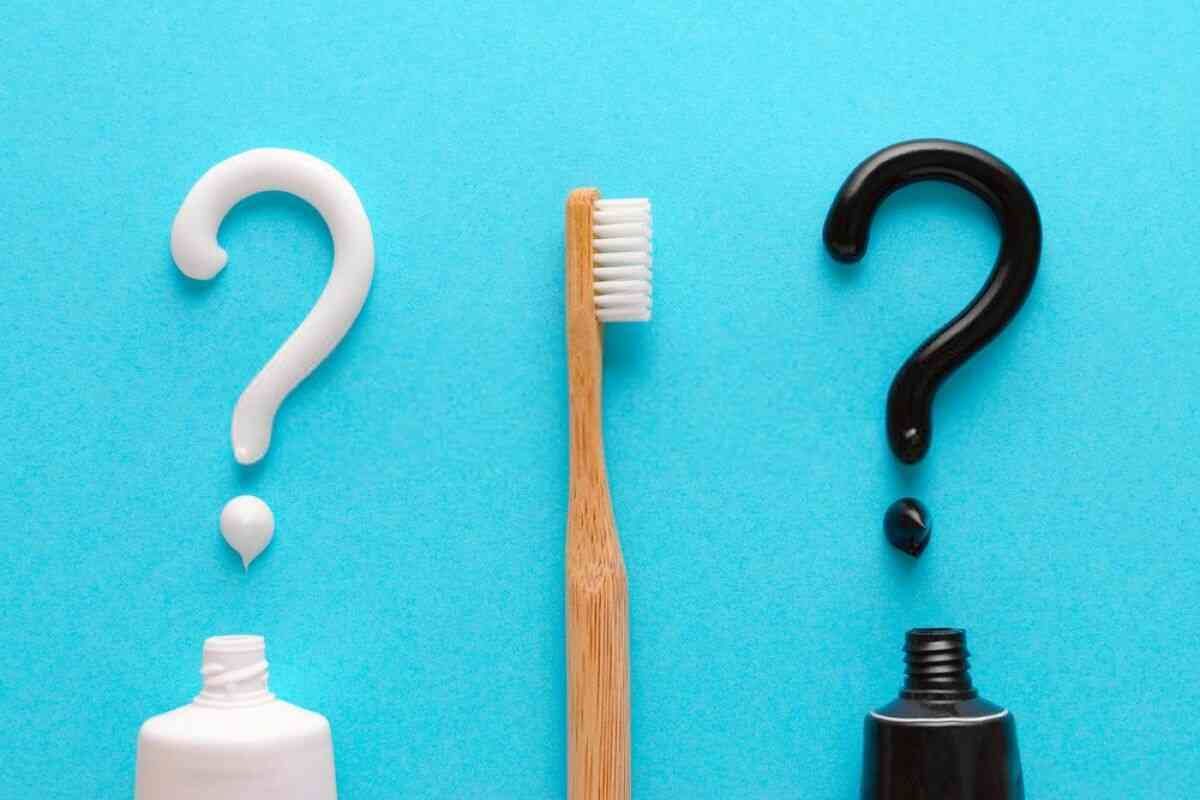Charcoal Toothpaste For Teeth Whitening: Yay Or Nay?
- - Category: Dental Care
- - 28 Dec, 2021
- - Views: 835
- Save

Activated charcoal seems to be all the rage lately, with claims of toothpaste infused with it being able to whiten.
Charcoal has become the CBD of the oral care market, appearing in everything. On her Instagram page, Kendall Jenner is even promoting Moon, a charcoal-based teeth brand. Fans of charcoal-infused toothpaste claim it whitens teeth and freshens breath more than any other toothpaste on the market, and you can now buy it in anything from supplement tablets to face masks (in its activated form, not the briquettes used for cookouts). However, recent research has cast doubt on whether charcoal is doing more damage than good to your teeth. All you need to know regarding the charcoal toothpaste craze is right here.
WHAT IS ACTIVATED CHARCOAL, AND HOW DOES IT WORK?
Activated charcoal is a type of carbon that has been processed to make the surface of its particles porous, and it's commonly used in water filters. All of those nooks and crannies function as magnets for other particles, which it absorbs, allowing all of those unwanted elements to be washed away when the charcoal is removed.
Activated charcoal toothpastes are a resurgence of traditional medicinal approaches. Charcoal is so potent that it's frequently utilized in hospitals and emergency departments to treat poisoning and drug overdose, sufferers. It binds to everything that comes in its paths like stains, tartar, bacteria, viruses, and possibly even your tonsils.
CAN I USE CHARCOAL TOOTHPASTE?
Charcoal offers no protection against tooth decay, according to a review published in the British Dental Journal in early 2019, and there is little scientific evidence to back up the other health claims. In fact, mixing powdered charcoal with toothpaste can aggravate the problem. When used too often in those with fillings, it can go into them and be difficult to get out. Charcoal particles can also become lodged in the gums and cause irritation.
Concerns have also been raised concerning charcoal's abrasiveness, which some believe could harm enamel if used frequently, as well as charcoal's proclivity to absorb anything it comes into touch with, including helpful things like pharmaceuticals.
Others claim that while charcoal isn't directly harmful to teeth, it won't improve your smile in the long run because the active ingredient isn't in contact with the tooth surface for long enough to have a significant whitening impact. If you're using a charcoal-infused paste, try brushing very lightly to avoid wearing down the surface enamel, which can render teeth more susceptible to discoloration in the long run.
Many charcoal-infused and natural toothpaste are manufactured without fluoride, which dentists strongly advocate for avoiding tooth decay. According to some research, applying fluoride to the skin rather than absorbing it through drinking water may be more helpful in the long run. If you reside in a region where fluoride is present in the drinking water and visit the dentist once or twice a year, brushing with a non-fluoridated natural toothpaste should be OK.
People who want a whiter smile can use activated charcoal as a supplement to brushing with conventional toothpaste, but it cannot be used in place of it. We need to keep regular toothpaste as part of our daily routine since it provides the fluoride we need to battle dental decay.
WHITENING TEETH WITH CHARCOAL?
There's a distinction to be made between eradicating surface stains and whitening your teeth. Extrinsic stains, also known as surface stains, are caused by the typical suspects: coffee, red wine, tobacco, and dark-colored meals and beverages. They live on the surface of the enamel and can usually be eradicated with toothpaste or surface whitening treatments.
Intrinsic stains are darker colors that come from within the tooth and can be caused by trauma, poor enamel, certain medications, or even too much fluoride. Consider this to be the underlying color of your teeth; no matter how committed you are to whitening the surface, the only way to achieve a significant lightening of tooth color is to use bleaching procedures that penetrate below the tooth's outer surface.
Dentists prescribe charcoal toothpaste to remove surface stains but not to whiten teeth. It is impossible to genuinely whiten a tooth with any toothpaste, but those with charcoal do efficiently remove surface stains. All of this is to imply that while a brush with activated charcoal can help you get rid of the symptoms of your cold brew addiction, nothing beats an in-office whitening procedure.
DETOXING: WHAT'S THE BIG DEAL?
Regarding the promises of "detoxifying" the mouth, while charcoal can help remove plaque and food particles that cause bad breath, the effect will be similar to that of any other toothpaste. Unlike the liver and kidneys, the teeth and gums do not perform a detoxifying job in the body, and since so-called toxins aren't usually found in your mouth, there's no point in utilizing tooth-cleaning to get rid of them.
The good news for people worried about charcoal-absorbing pharmaceuticals is that it only does so when prolonged contact with the digestive tract medications. There's a tiny possibility that the activated charcoal on your teeth will interfere with your medicines if you rinse it off rather than consume it.
Our Take
If you enjoy having your mouth turn a magnificent shade of black, learn more charcoal toothpaste, but don't expect it to solve dental problems in the absence of basic oral care.


